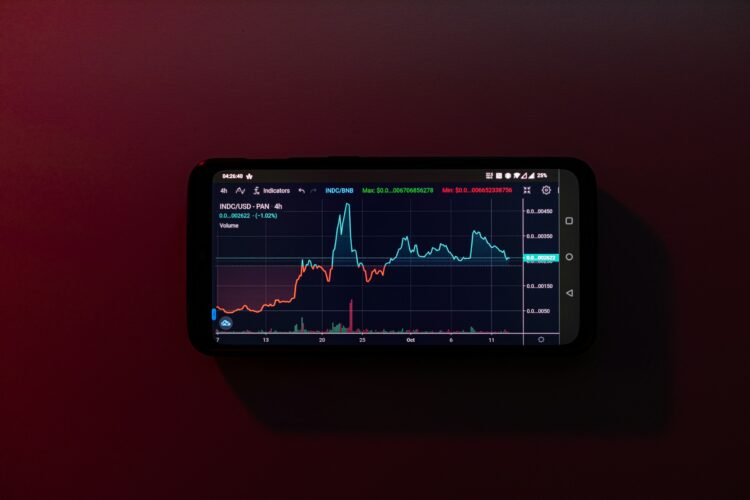In recent years, the rise of decentralized exchanges (DEX) has reshaped the digital asset exchange landscape. Diverging from their centralized counterparts, DEX operates on a decentralized network, leveraging blockchain technology to strengthen security and empower user control. Security emerges as a paramount concern within the cryptocurrency ecosystem, gaining significance as digital assets come to the forefront. The vulnerabilities inherent in centralized systems have prompted a shift toward decentralized alternatives, aiming to establish a more secure environment for users. This ongoing transition from centralized to decentralized models represents a fundamental paradigm shift in user interactions with digital assets. A nuanced understanding of decentralization principles is pivotal in comprehending the security strides offered by DEX, contributing to the evolution of a more secure and user-centric digital asset exchange landscape. So, if you are planning to trade cryptocurrency, you must choose the best platform like www.tradermate.software.
Understanding Decentralization in DEX
Decentralized vs Centralized: Key Differentiators
Decentralized exchanges distinguish themselves from centralized counterparts by eliminating single points of control. Instead of relying on a central authority, DEX operates on a distributed network of nodes, providing increased resilience against potential threats.
Role of Blockchain Technology in Decentralization
Blockchain technology serves as the cornerstone of decentralization in DEX. By utilizing a decentralized ledger, DEX ensures transparency, immutability, and tamper resistance, mitigating the risk of unauthorized access and manipulation.
Benefits of Decentralization in Enhancing Security
The decentralized nature of DEX introduces several security benefits, including resistance to censorship, reduced risk of hacking, and increased user control over their assets. These advantages collectively contribute to a more secure and user-centric exchange environment.
Security Challenges in Traditional Exchanges
Central Points of Failure and Vulnerability
Traditional centralized exchanges are susceptible to single points of failure, making them lucrative targets for malicious actors. Exploiting vulnerabilities in a centralized infrastructure poses significant risks to user data and asset security.
History of Security Breaches in Centralized Exchanges
The history of centralized exchanges is marred by notable security breaches, resulting in the compromise of user information and potential financial losses. These incidents underscore the critical need for a more secure and resilient exchange model.
User Data and Asset Protection Concerns
Centralized exchanges often require users to relinquish control over their private keys and personal information, exposing them to potential data breaches and identity theft. Decentralized alternatives address these concerns by empowering users with greater control.

Architectural Elements of Decentralized Exchanges
Smart Contracts: The Backbone of DEX Security
Smart contracts play a pivotal role in DEX security, facilitating trustless transactions by automating and enforcing predefined rules. These self-executing contracts eliminate the need for intermediaries, reducing the risk of manipulation.
Peer-to-peer transactions: Eliminating Intermediaries
The peer-to-peer transaction model employed by DEX eliminates intermediaries, fostering direct transactions between users. This not only enhances efficiency but also reduces the attack surface, minimizing potential security vulnerabilities.
Distribution of Nodes: Strengthening the Network
The decentralized network architecture of DEX relies on the distribution of nodes, enhancing the network’s robustness against attacks. A distributed network significantly reduces the risk of a single point of failure, fortifying the overall security of the exchange.
Decentralized Governance and Decision-making
Community-driven Consensus Mechanisms
DEX often adopts community-driven consensus mechanisms, enabling users to actively participate in decision-making processes. This decentralized governance model ensures that the exchange’s policies and security measures align with the collective interests of the community.
Role of Token Holders in Decision-making
Token holders, as active participants in the DEX ecosystem, play a crucial role in decision-making. Their voting power contributes to the establishment of consensus, fostering a democratic and resilient system that is less susceptible to external manipulation.
Resilience Against External Manipulation
The decentralized governance structure of DEX acts as a safeguard against external manipulation. By involving the community in decision-making, DEX becomes more resistant to external pressures and ensures a more secure and transparent ecosystem.
Privacy and Anonymity in Decentralized Exchanges
User-controlled Wallets and Private Keys
DEX prioritizes user privacy by allowing them to control their wallets and private keys. This fundamental shift empowers users with greater control over their assets, reducing the risk of unauthorized access and enhancing overall security.
Reducing the Risk of Identity Theft
Decentralized exchanges mitigate the risk of identity theft by minimizing the collection and storage of sensitive user information. This approach ensures that user identities are better protected, contributing to a more secure exchange environment.
Enhanced Confidentiality in Peer-to-Peer Transactions
Peer-to-peer transactions on DEX inherently enhance confidentiality. By eliminating intermediaries, users can transact directly with each other, reducing the exposure of sensitive information and fostering a more private and secure exchange environment.
Hacking Resistance and Decentralized Asset Custody
Immutable Ledgers: The Shield Against Tampering
The use of immutable ledgers in DEX ensures the integrity of transaction records. This tamper-resistant feature acts as a shield against hacking attempts, providing users with greater confidence in the security of their assets.
Decentralized Custody Solutions for User Funds
Decentralized custody solutions empower users with control over their funds, reducing reliance on centralized custodians. This shift not only enhances security but also minimizes the risk of large-scale asset losses due to external breaches.
Mitigating the Risk of Large-scale Attacks
The decentralized nature of asset custody in DEX minimizes the risk of large-scale attacks. Even in the event of a breach, the distributed nature of user funds prevents a systemic failure, contributing to a more resilient and secure financial ecosystem.
Future Trends and Evolutions in DEX Security
Advancements in Blockchain Technology
Ongoing progress in blockchain technology persists in molding the future of DEX security. Developments like enhanced consensus algorithms and layer-two solutions play a vital role in an ever-changing and secure decentralized exchange landscape.
Integration of Zero-knowledge Proofs for Enhanced Privacy
The integration of zero-knowledge proofs represents a progressive step toward enhanced privacy in DEX. This cryptographic technique allows users to prove the authenticity of information without revealing the actual data, contributing to heightened confidentiality.
Evolution of Decentralized Consensus Algorithms
The development of decentralized consensus algorithms further refines the security of DEX. Advancements in consensus mechanisms enhance scalability, efficiency, and resistance against potential attacks, ensuring a robust and secure exchange environment.
Conclusion
In summary, navigating the enhanced security landscape of decentralized exchanges underscores the pivotal role played by decentralization in mitigating risks and reinforcing user autonomy within the cryptocurrency realm. The burgeoning significance of decentralized exchanges lies in their capacity to offer a secure and user-centric departure from conventional models. As the crypto ecosystem undergoes evolution, decentralized exchanges emerge as stalwarts of security and resilience. Concluding this exploration, users are urged to prioritize security when engaging with decentralized alternatives, recognizing that the principles of decentralization empower participants and contribute to fostering a more secure and trustworthy financial ecosystem for all stakeholders.




